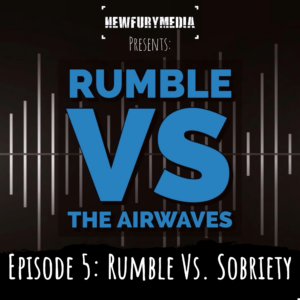For many citizens of the United States, the idea of a “post-racial” America, one in which the horrifying transgressions of the past have been learned from and left behind, is a rather comforting one. To think that the nation has progressed so far – to a point where race no longer matters, to a place where racial minorities are no longer discriminated against systematically or institutionally – is more than a little uplifting. It is an idea that absolves white Americans of their history of oppression, for, in a post-racial America, none of that matters, right? None of that matters when the society and the majority no longer oppresses minority groups on a large, cultural scale.
Unfortunately, the idea of an America no longer plagued by culturally ingrained, systematic racism and mass prejudice of minorities is nothing more than a hopeful fantasy. Many Americans today would surely be surprised to know that the American entertainment industry’s portrayal of racial minorities has been less than sensitive, even as recently as 1981, when famed actor Anthony Hopkins donned blackface makeup to portray the lead role in a film adaptation of Shakespeare’s Othello, and, indeed, this hopeful, forward-looking nation is not nearly as far from the antebellum period – the period which gave birth to American minstrelsy – as many would hope. While 2015 may have seen the elimination of blackface in mainstream media, this evolution of the culture of American minstrelsy still persists today in one form that is so obvious, many don’t see it.
The phenomenon of the white rapper has emerged in America with stunning cultural force, much like the American minstrel show in the 1800s and 1900s, and much like the actors and singers performing in those shows, white rappers today have made their formidable successes on borrowed, or in many cases, stolen voices. While minstrels in the old shows would make their fame by singing in ragtime, blues, and jazz styles, appropriating from black musics at the time, white rappers today do the same with Hip Hop music, and in doing so are identifying with, and appropriating, the Black struggle in America.
When one gives it much thought, there’s really not too much difference, as award-winning author Michael Alexander suggests, between the blackfaced minstrelsy of Al Jolson and the minstrelsy of Eminem. Both identified with Black music as a way to find escape from, and to channel, their own struggles, and as such, found themselves identifying with the Black American struggle themselves, a reality which they could not properly understand. In America, there never was, nor has there ever been, any danger of a white person being mistaken for a black person, and therefore, white Americans who choose to appropriate black style, music, and struggle are not in danger of being victimized by systematic racism as a result of this expression, whereas Black Americans, by retaliating against the institutionalized racist oppression by means of personal expression, only continue to be victimized as a result. White rappers use the music, clothing, and symbolism adopted by Black Americans and artists without a true understanding of their meaning or the struggle associated with them.
Now, none of this is to say that this isn’t a complicated concept. American culture and American minstrelsy itself have always been complicated. After all, as Michael Alexander pointed out, many of America’s highest cultural achievements have come as a result of this minstrel culture and appropriation – the works of George Gershwin, Al Jolson, and Elvis Presley among them. And certainly, my claim that the successes of white rappers were made on stolen voices does not imply that there was any lack of talent on behalf of the rappers themselves. But one must look to the voices of the past as well to see that artists like Al Jolson were, by no stretch of the imagination, untalented either. One must realize that an artist can be at once skillful and appropriative, can contribute great works and still be stealing. This topic may be a sensitive one, perhaps even a controversial one, but culture, like all things, deserves to be analyzed critically for all that it is, and all that it entails, including the myriad of problems that it may have, whether we want to face them or not.
-Andrew Oliver





More Stories
Linkin Park’s super heavy “QWERTY” has been unveiled to the world, and predictably, it’s going viral on social media
Good news! Deftones have almost finished their upcoming tenth full-length album
This Day In Music History: April 8th, 1994 – The Offspring accelerates punk’s popularity with a classic ‘Smash’ hit